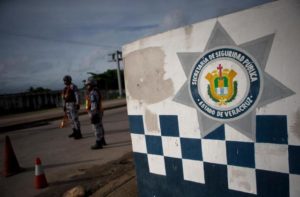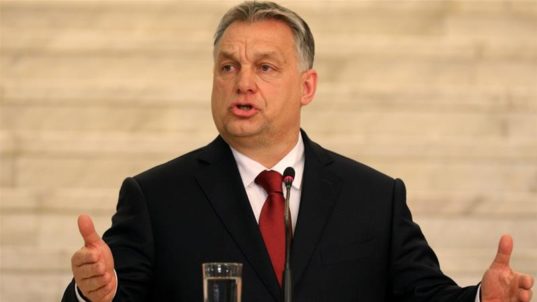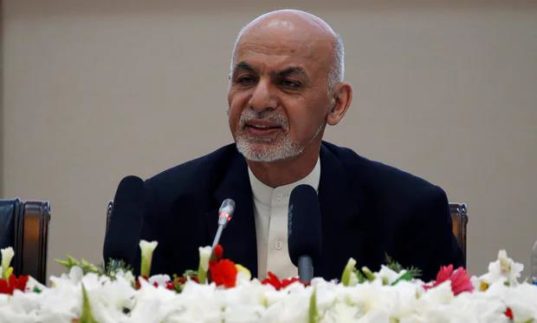|
| |
Summer Internship Applications Open!
Want to join the IPSI team like our spring intern group? All current graduate students are encouraged to apply! You’ll gain substantive experience and build your network through the following typical projects:
- Assist IPSI in researching and monitoring violent conflict at all stages
- Assist in drafting memoranda and weekly Peace & Security Reports
- Assist in designing simulations, workshops, and other experiential learning tools
- Prepare briefing materials for meetings and trips
- Help organize Symposiums/Conferences and fundraising activities
- Assist in planning and executing project objectives
- Attend briefings/meetings of interest in DC and prepare briefings
For more information and to apply, click here!
|
|
|
|
|
| |
This week in Sub-Saharan Africa
|
|
|
|
| |
CENTRAL AFRICAN REPUBLIC: Six aid workers killed
On Sunday, unidentified assailants killed a UNICEF employee and five other education workers as the group was traveling to the northeastern town of Markounda, located in a remote region near the Chadian border, where they were to train local teachers. The victims were Central African Republic citizens and included a UNICEF education consultant, two education ministry officials, as well as three members of a local UNICEF partner organization. Comment: UNICEF did not name the attackers, but militia violence in the Central African Republic has intensified over the past year, making it one of the world’s deadliest countries for humanitarian workers. Unknown assailants killed six Red Cross volunteers in the southeast last August, barely a month after another worker was shot dead by an unidentified armed group in the town of Bangassou. (Reuters, The New York Times, U.S News, Gulf Times)
|
|
|
|
|
| |
MALI: Four UN peacekeepers killed and four more wounded
On Wednesday, an explosive device killed four UN peacekeepers and wounded four more in the country’s central Mopti region. All the peacekeepers were from Bangladesh. Another blast killed six Malian soldiers the day before. Comment: The UN mission in Mali, which has more than 11,000 troops and was established in 2013, is one of the most dangerous peacekeeping operations in the world, with troops and convoys regularly coming under attack from armed groups. According to UN figures, 146 members of the mission have been killed since 2013. The security situation in Mali has been fragile since 2012 when armed groups captured the entire northern part of the country only to be pushed back a year later following a military intervention by France. (Aljazeera, ABC News, Reuters)
|
|
|
|
|
| |
ZIMBABWE: Gukurahundi victims’ hearings begin
This week, the National Peace and Reconciliation Commission (NPRC) began hearings on alleged atrocities committed in the country more than 30 years ago, during the rule of Robert Mugabe. Several sources claim that former President Mugabe ordered the deaths of people he believed were trying to depose him. Current President Mnangagwa last month refused to apologize for the atrocities, but said he is committed to addressing the emotive issue. Comment: The “Gukurahundi victims” refers to the estimated 20,000 innocent civilians in Matabeleland and Midlands provinces thrown into an abandoned mine shaft by a government deployed North Korean-trained brigade claiming it was fighting armed dissidents; however, the army targeted civilians, who were supporters of late vice-president Joshua Nkomo and his Zapu party. (Aljazeera, The Standard, News24)
Researched/Written by Brian Adienge
|
|
|
|
|
| |
This week in the Americas & Caribbean
|
|
|
|
| |
BRAZIL: Military deployment causes fear and concern among the public
On Monday, President Temer announced the creation of a new extraordinary ministry of public security. This comes almost a week after Brazilian troops had been deployed to Rio de Janeiro in an effort to combat the increasing violence and return stability to the region. The Brazilian media has been critical of the efforts taken by the troops, including conducting random searches of civilian property. Other human rights activists have claimed the military is targeting the poor. Comment: In an interview on Tuesday, General Walter Souza Braga Netto publicly announced that the military intervention in Rio is a “test case” and made it clear to the public that it was not his choice to decide if military intervention was to be expanded to other regions. (BBC, Guardian, Janes)
|
|
|
|
|
| |
ECUADOR: Negotiations over Julian Assange’s fate have ceased
On Friday, Ecuador’s Foreign minister Maria Fernanda Espinosa stated that the United Kingdom was unwilling to continue negotiations over the release of WikiLeaks founder Julian Assange. These statements came days after the arrest warrant for Assange charging him with sexual assault and skipping bail was upheld by the courts – meaning he would be detained if he leaves the Ecuador Embassy. The U.S. government announced they were still pursuing a criminal investigation over WikiLeaks and Assange for illegally publishing stolen documents. Comment: Last December, Ecuador granted Assange citizenship in an effort to give him immunity from the UK. A former UK cabinet member claims Assange’s stay in the Embassy has cost the UK more than USD 13 million. (BBC, Guardian, US News)
|
|
|
|
|
| |
MEXICO: Police charged with using death squad tactics in efforts to combat cartels
| |

|
On Wednesday, allegations were filed against the former top police commanders and the former head of state security in the state of Veracruz. According to the indictment, police detained youth without recording the arrests, then turned them over to specialized interrogation units and torture squads housed at the police academy. According to the readings in court, the pattern has been repeated in at least 14 cases; all victims were pulled from the streets, roadsides, and vehicles because the police believed they were acting on behalf of local drug cartels. Comment: These human rights abuses are not new to this Mexican state, with similar strategies being used during the anti-guerrilla counterinsurgency operations orchestrated in the 1960s and 1970s. A mass grave with 250 skulls was uncovered in Veracruz last March, and the authorities are being criticized for not doing more to investigate the 2,400 other missing person reports in the state. (ABC, Guardian 1, 2, U.S. News)
Researched/Written by Connor Murnane
|
|
|
|
|
| |
This week in East Asia & Pacific
|
|
|
|
| |
CAMBODIA: U.S. cuts aid over democracy concerns
On Tuesday, the U.S. government announced that it will suspend USD 8.3 million worth of aid programs for Cambodia’s local authorities, military, and taxation department because of “recent setbacks to democracy” in the country. The statement from the White House comes two days after the Cambodian Senate election in which the ruling party, Cambodian People’s Party (CPP), won all 58 of seats in the upper house of parliament. Mus Sochua, a former deputy leader of the now dissolved Cambodia National Rescue Party (CNRP), welcomed the move and called for all direct foreign aid to Prime Minister Hun Sen’s government to be suspended. Comment: Last December, the U.S. government announced an end to its electoral assistance in Cambodia in response to the dissolution of CNRP. (BBC, Channel NewsAsia, The Phnom Pehn Post)
|
|
|
|
|
| |
CHINA: The Communist Party proposes to drop presidential term limits
| |

|
On Sunday, the China Communist Party (CCP) proposed a constitutional amendment to abolish the two-term limit on the presidency by removing a clause from article 79 of China’s constitution, which restricts both President and Vice President of the People’s Republic of China to two terms only. The proposed amendment, which will have to be ratified by the parliament in March, seeks to allow President Xi Jinping to remain as the country’s leader after the end of his second term in 2023. The announcement ignited online discussion in China, pushing the government to censor certain terms like “emigration,” tenure,” and “constitution.” Comment: Last December, the Political Bureau of the Communist Party of China Central Committee announced its plan to discuss proposed changes in the country’s constitution. In January, the Party’s body proposed also to include “Xi Jinping Thought” in the country’s constitution as a guiding principle of the nation. (CCN, BBC, Xinhuanet).
|
|
|
|
|
| |
SOUTH KOREA: Prosecutors request 30-year jail sentence for former president
On Tuesday, South Korean prosecutors asked the Seoul Central District Court to sentence former President Park Geun-hye to a 30-year prison sentence and a USD 110 million fine, for alleged abuse of power and corruption. They argued that Park’s impeachment over corruption scandal has left “an indelible stain” on the country’s history, making her “ultimately accountable.” More than 3,000 supporters of the former president demonstrated outside the court calling for her release. Comment: The recommendation comes two weeks after Choi Soon-sil, a longtime friend of Park was jailed for 20 years for corruption, peddling, and abuse of power. President Park Geun-hye was impeached in March last year and detained soon afterwards. (The Washington Post, Voice of America, Xinhua, Reuters)
Researched/Written by Edgar Peter Mutta
|
|
|
|
|
| |
This week in Europe & Central Asia
|
|
|
|
| |
HUNGARY: Local election loss for ruling party rallies opposition against current president

|
|
On Sunday, Hungary’s ruling right-wing party, Fidesz, lost a local election for mayor to an independent candidate, Peter Marki-Zay, in the city of Hodmezovasarhely. This loss has become a rallying point for opposition groups to vote against current Prime Minister Viktor Orban in the upcoming presidential election this April. Orban is running for a third term, despite allegations of corruption. Although there is not a structured alliance, both the Socialists (the major leftist party) and the Jobbik (a former far-right party) plan to work together in what they consider to be a “turning point” victory over Orban’s Fidesz party. When asked about the actions of the opposition after the local election, Orban said that his party’s efforts must be doubled to ensure victory. Comment: Orban is the longest serving Prime Minister in Hungary since the fall of Communism. He is known for his right-wing views and anti-immigration views. Fidesz is projected to win a majority of parliamentary seats in the upcoming election, but may not gain enough seats to form its own government; meanwhile, Jobbik is polling at 11 percent and the Socialists at nine percent. (Budapest Beacon, The Guardian, Al Jazeera, Reuters)
|
|
|
|
|
| |
SLOVAKIA: Ruling party accused of corruption with Italian mafia
On Wednesday, a news portal released an unfinished report investigating the ties of Prime Minister Robert Fico’s ruling party with the Italian mafia in alleged corruption activities. The report was released four days after the investigative journalist, Jan Kuciak, and his fiancée were murdered in their home. Three high-level officials have already stepped down during the investigation: Culture Minister Madaric resigned from “shock” of the murders; whereas the National Security Council Secretary Jasan and Prime Minister aide Troskova resigned after their names had been mentioned in Kuciak’s report, although they denied any wrongdoing. Many citizens have also called for anti-corruption protests, while opposition politicians have demanded for the interior minister and police chief to resign after failing to protect Kuciak. Comment: According to the Organized Crime and Corruption Reporting Project, this was the first murder of an investigator for their work in the country, although, this is the fifth killing of journalists investigating corruption in the EU in the past ten years. (OCCRP, The Local Italy, The Guardian, Reuters)
|
|
|
|
|
| |
UKRAINE: Protestors and police clash outside parliament building
On Tuesday, dozens of people protested outside the Ukrainian parliament building in Kiev for President Petro Poroshenko’s resignation over alleged corruption. Protestors and police officers both suffered injuries, with the police claiming demonstrators threw stones and Molotov cocktails at officers after they blocked demonstrators from lighting tires on fire outside the building. The Liberation Movement, led by Yegor Sobolev, used the protests to advocate for the establishment of an Anti-Corruption Court. Comment: The Ukrainian MP Anton Gerashchenko claimed that the protests took place under the guidance of ex-governor Mikheil Saakashvili’s opposition party, although they denied involvement in the protest. Last week, thousands of protestors marched for Poroshenko to resign. (Kyiv Post, UNIAN, TASS, Radio Free Europe/Radio Liberty)
Researched/Written by Daniel Boerger
|
|
|
|
|
| |
This week in the Middle East & North Africa
|
|
|
|
| |
EGYPT: Top prosecutor orders media to be monitored ahead of elections
On Wednesday, Egypt’s top state prosecutor Nabil Sadek ordered his staff to closely monitor all news and social media outlets and take legal action against websites they deem to be “hurting national interests.” He added that the order came “In light of recently observed attempts by the ‘forces of evil’ to undermine the security and safety of the country through publishing lies and fake news through different media outlets and social media.” Comment: The order comes after the BBC aired a story about state-enforced disappearances that Egyptian authorities demanded be retracted. Cairo started blocking news websites in May 2017. According to the Association for Freedom of Thought and Expression (AFTE), 429 websites are currently banned, among them those of Human Rights Watch, Amnesty International, and Al Jazeera. (Ahram, NYtimes, VOA)
|
|
|
|
|
| |
ISRAEL / PALESTINE: The Church of the Holy Sepulchre reopens its doors after strike
On Wednesday, the Church of the Holy Sepulchre in Jerusalem’s Old City reopened its gates after a three-day closure to protest against a tax plan and draft property law proposed by Israel. The proposed measures would have required churches to pay the city more than USD 180 million in alleged “unpaid” property tax from commercial holdings and allow Israel to confiscate land sold by the churches to private investors. Following international pressure and rising protests, especially from Palestinian Christians, Israeli Prime Minister, Benjamin Netanyahu announced the formation of a committee to discuss the imposition of the bill. Comment: Churches are major land owners in Jerusalem. Greek Orthodox, Armenian, and Roman Catholic denominations share custody of the Church of the Holy Sepulchre, which is built on the traditional site of Jesus’ crucifixion and burial. (Aljazeera, JPost, Reuters)
|
|
|
|
|
| |
SYRIA: UN report links North Korea to Syria’s chemical weapons program
On Wednesday, international news agencies reviewed a draft UN report accusing North Korea of sending missiles and chemical weapons supplies to Syria. The report was written by a panel of experts who looked at North Korea’s compliance with UN sanctions. It states that North Korea supplied acid-resistant tiles, valves, and thermometers to Syria and that North Korean missile technicians have been spotted working at known chemical weapons and missile facilities inside of Syria. Comment: Syria is a signatory of the Chemical Weapons Convention and agreed to have its declared chemical weapons stock destroyed in 2013 after a Sarin nerve agent attack killed hundreds of people in rebel-held suburbs of Damascus. (BBC, NPR, NYtimes)
Researched/Written by Mohamed Ismail
|
|
|
|
|
| |
AFGHANISTAN: President Ghani makes an offer to the Taliban

|
|
On Wednesday, at the second Kabul Process conference setup to discuss the creation of a platform for peace talks, President Ashraf Ghani presented an offer to the Taliban that would recognize them as a legitimate political group. President Ghani also proposed a ceasefire, the release of prisoners from both sides of the conflict, and new elections as part of a range of options for the proposed political process that he says will bring an end to the 16-year long war. Officials from 25 countries, the EU, UN, and NATO attended the conference held in Kabul. The United Nations mission in Afghanistan (UNAMA) stated that it “strongly supports the vision for peace through intra-Afghan dialogue.” Comment: On Tuesday, one day before the conference, a Taliban official stated that the Taliban invites U.S. officials to its political office in Doha, Qatar to discuss a “peaceful solution” to the conflict. The Taliban did not extend an invitation to the Afghan government and has not yet responded to President Ghani’s offer. (Aljazeera, Afghanistan Times, The Guardian, Reuters)
|
|
|
|
|
| |
PAKISTAN: Bomb kills four security personnel near Quetta
On Wednesday, a suicide attack killed four and injured six security personnel. The attack occurred at a checkpoint in the mountainous area of Nosahar, a short distance from Quetta. The attacker targeted security personnel, who had been conducting a search operation nearby. Comment: On Wednesday, in a separate incident, two policemen died when a senior police officer’s convoy came under attack. The Pakistani Taliban claimed responsibility for both attacks. (The Express Tribune, Pakistan Observer, The Indian Express, The Washington Post)
|
|
|
|
| |
SRI LANKA: A mosque and several shops vandalized in Ampara
On Monday, a clash between majority Sinhalese Buddhists and minority Muslims in Ampara, a southeastern town in Sri Lanka left five people wounded. Police moved to control the situation after a group of Sinhalese civilians attacked a mosque, four shops, and several vehicles. According to a local report, the motivation for the attack started with a rumor that a Muslim eatery puts sterilization pills in their food. The Muslim Council of Sri Lanka condemned the attack and asked the government to investigate the perpetrators. So far, the Ampara police department made no arrests, but an investigation into the attack was launched. Comment: Tensions between Buddhists against minority Hindus and minority Muslims have existed for a long time. President Maithripala Sirisena and Prime Minister Ranil Wickremasinghe promised to protect minorities, but attacks against them continue. (Aljazeera, Colombo Page, Gulf Times)
Researched/Written by Pamela Mhute
|
|
|
|

|
|